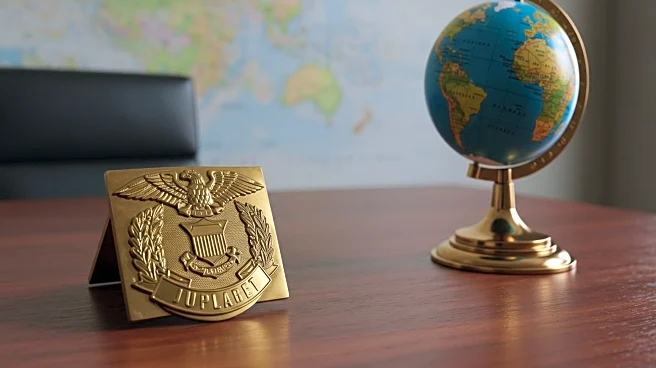What's Happening?
Retired Lt. Col. Alexander Vindman has highlighted the difficulties in preparing President Trump for high-stakes meetings, particularly with Russian President Vladimir Putin. Vindman, who served as the director for European Affairs at the National Security Council during Trump's first presidency, shared insights during an interview with CNN News Central. He noted that Trump is notoriously hard to prep, often disregarding historical context and preferring to focus on his image. Vindman recalled Trump's previous interactions with Putin, where Trump appeared to favor Putin's statements over U.S. intelligence regarding Russian interference in the 2016 election. Vindman suggested that appealing to Trump's concern about appearing strong might encourage him to adopt a tougher stance against Putin.
Why It's Important?
The preparation of President Trump for meetings with foreign leaders, especially adversaries like Putin, is crucial for U.S. foreign policy and international relations. Trump's approach to these meetings can significantly impact diplomatic outcomes and the U.S.'s global standing. Vindman's comments underscore the challenges faced by advisors in ensuring that Trump is adequately prepared to represent U.S. interests. The potential for Trump to take a tougher stance against Putin could influence ongoing geopolitical tensions, particularly regarding the conflict in Ukraine and U.S.-Russia relations. This situation highlights the importance of strategic communication and preparation in high-level diplomatic engagements.
What's Next?
President Trump is scheduled to meet with Putin in Alaska, where discussions may include territorial issues involving Ukraine and potential security guarantees. Trump's stance during this meeting could affect U.S. foreign policy and its alliances, particularly with European countries. The outcome of the summit may also influence future U.S.-Russia relations and the broader geopolitical landscape. Stakeholders, including political leaders and international observers, will be closely monitoring the meeting for any shifts in policy or diplomatic tone.









